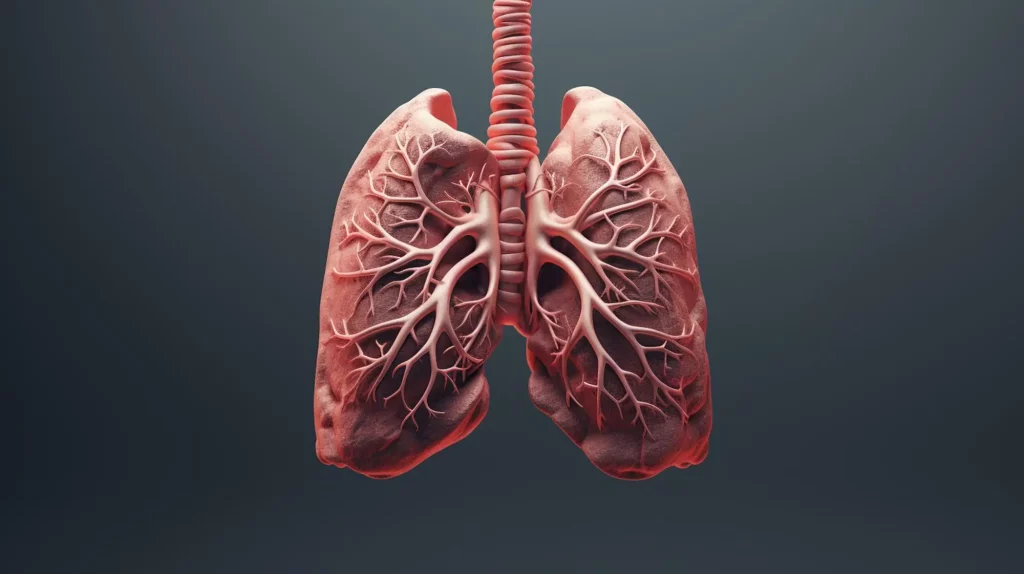Cystic fibrosis is a complex genetic disorder that can pose significant challenges to you and your family.
Despite the difficulties it presents, advancements in medical research have led to improved treatment options and a better understanding of the condition.
Here’s everything you need to know about this cystic fibrosis, including its prevalence, causes, symptoms, diagnosis and the current treatment methods available.
What is cystic fibrosis?
Cystic fibrosis is a life-threatening genetic disorder that primarily affects the respiratory and digestive systems, including these parts:
- Pancreas
- Liver
- Kidneys
- Intestines
At its core, CF is characterized by the production of thick, sticky mucus that can clog your airways which can lead to repeated severe respiratory infections. The same mucus can block the pathways in your pancreas, preventing essential enzymes from reaching your intestines to break down food and absorb vital nutrients.
How prevalent is cystic fibrosis?
Cystic fibrosis is more common than you think, especially if you’re of Northern European descent, where it’s most prevalent. In this region, 1 in every 2,500 to 3,500 newborns are diagnosed with the condition in these communities.
Globally, though, the frequency can vary widely. In the United States alone, about 30,000 people are living with CF, with around 1,000 new cases diagnosed each year.
What leads to cystic fibrosis?
CF is caused by mutations in the CFTR gene, specifically a mutation in the CFTR gene, which regulates the movement of salt and water in and out of cells. When the CFTR protein is defective, it leads to the accumulation of thick mucus in the lungs and other organs.
Cystic fibrosis is inherited in an autosomal recessive manner, meaning that you must inherit two defective CFTR genes, one from each parent, to develop the condition.
In other words, oth your mother and father must be carriers of the mutation for you to have CF.
While being a carrier, your parent might not show any symptoms, making CF a silent passer through generations until two carriers conceive a child. Genetic screenings can also reveal if you’re a carrier or at risk of having a child with CF.

Identifying symptoms of cystic fibrosis
Symptoms of CF can vary widely depending on the severity of the disease and the organs involved. Common respiratory symptoms include:
- Persistent coughing
- Frequent lung infections
- Wheezing
- Shortness of breath
These respiratory symptoms are telltale signs, but CF doesn’t stop there. Digestive symptoms may include:
- Poor growth
- Weight gain difficulties
- Intestinal blockages
- Greasy and bulky stools
Very salty-tasting skin is another indicator, a sign so distinct that it was historically used for diagnosis.
Diagnosis and tests of cystic fibrosis
Diagnosis of CF involves a combination of tests, including the following:
- Genetic testing for mutations in the CFTR gene
- Sweat chloride tests to measure the amount of chloride in sweat
- Lung function tests to assess breathing difficulties and lung capacity
Newborn screening programs in many countries now include tests for CF. This initiative allows for early diagnosis and treatment initiation.
Treatment methods for cystic fibrosis
While there‘s no cure for CF, treatments aim to manage symptoms, reduce complications and improve the quality of life for those affected.
Your treatment regimen may include the following:
- Airway clearance techniques (ACTs) to help loosen and clear mucus from the lungs
- Medications such as antibiotics to treat lung infections, CFTR modulators to target the genetic root of the disease and pancreatic enzyme supplements to aid digestion
- Nutritional support, including a high-calorie diet and vitamin supplements, to address malnutrition and promote growth
- Physical therapy and exercise to improve lung function and overall health
- Lung transplantation may be considered in advanced cases where respiratory failure occurs
Recent advancements in CF treatment, particularly the development of CFTR modulators, have significantly improved the outlook for many people with this condition. These drugs target the underlying genetic cause of CF, helping to improve lung function, reduce pulmonary exacerbations and enhance overall well-being.
Key takeaway
Understanding cystic fibrosis and its treatment is crucial for those affected by the disease and their caregivers. While CF remains a challenging condition, ongoing research and development of new treatments continue to offer hope for improved management and outcomes.
The journey with CF is highly personal, and staying proactive in your care, keeping up with treatments and regularly consulting your healthcare team can help you navigate the challenges of living with this condition.




















































